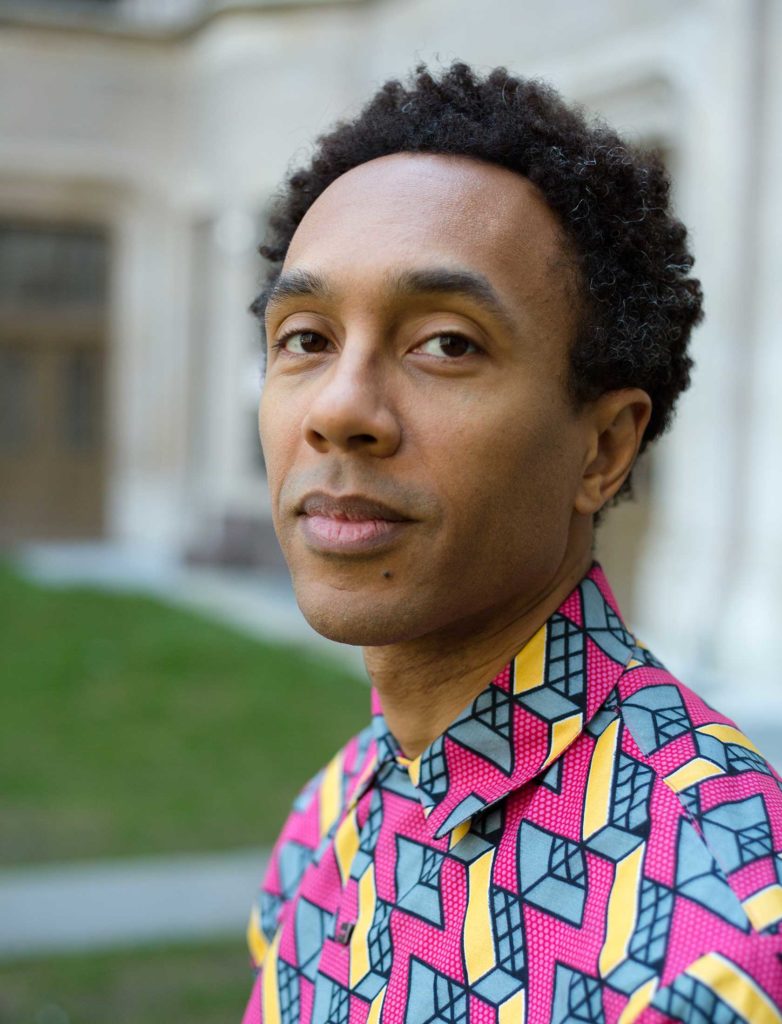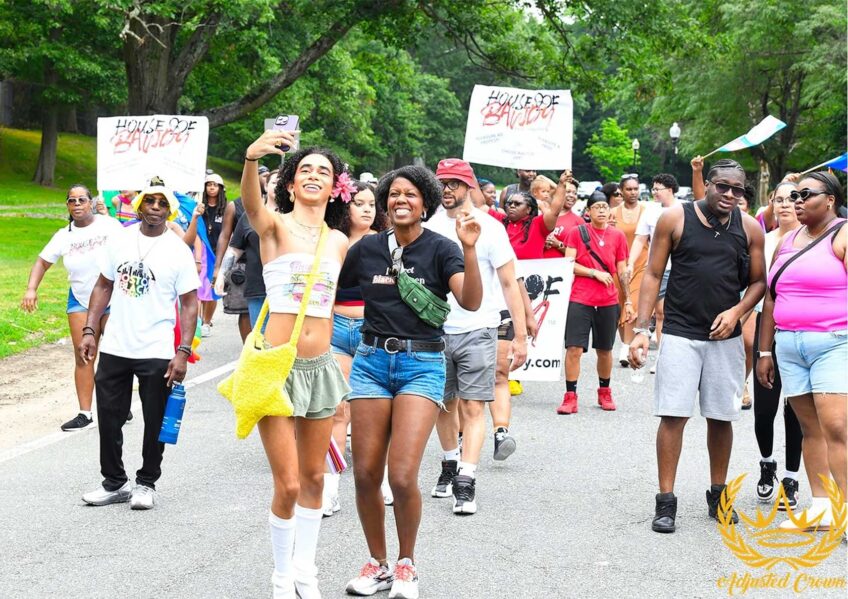
North Andover native and sound artist Jace Clayton returns to Boston for his show “Jace Clayton: They Are Part,” running at MassArt Art Museum (MAAM) Feb. 23–July 30. The highly participatory installation encourages viewers to experience sound in a new way.
“They Are Part” comprises three of Clayton’s installation-style works. The exhibition centers on the East Coast premiere of “40 Part Part,” a circle of 40 speakers on wooden stands turned inward. At the heart of the circle is a plinth where visitors can connect their phones or devices and play music, video or other audio. When they do, the sound is transformed across the speakers, creating new auditory and spatial experiences.
“They get to hear all these changes and transformations that may be associated with something experimental or avant-garde, but it’s on something they already know really well, so they understand what’s being changed and how—because they’ve chosen the source material,” says Clayton.

Jace Clayton. 40 Part Part, 2022. Commissioned by FRONT International: Cleveland Triennial for Contemporary Art and the New York Philharmonic. PHOTO: FIELD STUDIO PHOTOGRAPHY
The second stage of the exhibition, “Sufi Plug Ins” is equally participatory. Clayton has created a suite of digital music-making tools that are based not in the Western musical tradition, as is typical, but in North African musical traditions. The result is a set of sounds and tones unusual in digital music technology. Exhibition visitors can utilize a keyboard to play around with the tools, exploring how they work, and musicians can download the suite for free to use in their practice.
“It’s about offering a platform for people to explore with sound, and really encouraging that to give agency to the viewer,” says Clayton. “One of the things I’m interested in when I make art is, how can I use technology to do things which wouldn’t even have been possible 10 years ago to make an artistic experience?”
The final piece of the installation will be a series of live, one-of-a-kind, site-specific performances at the museum. Clayton will work with local choirs, first having them perform their own repertoire and then having them perform a composition he wrote specifically for them and for the MAAM space. Each performance will be free and open to the public.
Now based in New York, Clayton’s musical roots began in the Boston area. As a young artist, he would DJ around the Boston scene and was a founding member of the collective sound art group Toneburst, who may have a reunion at MAAM during the exhibition. Clayton went on to attend Harvard College and spent a few years in Boston after that. Those early experiences, he says, continue to impact his work to this day. Social and creative engagement in the work is still a central tenet of Clayton’s practice.
“I love the way sound and music are kind of a universal social glue,” says Clayton. “I want to make art that reflects the joy and strangeness of being alive.”







